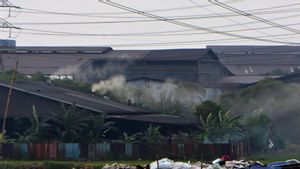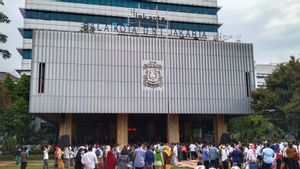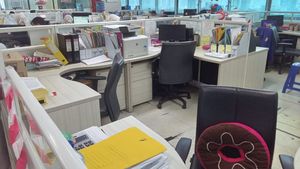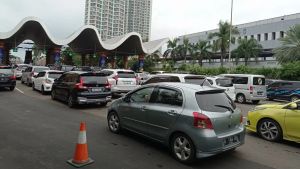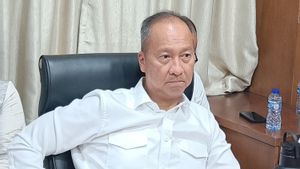JAKARTA - Minister of Home Affairs Tito Karnavian instructed state civil servants (ASN) throughout Jabodetabek to implement a work from home (WFH) system to reduce air pollution levels.
This is stated in the Instruction of the Minister of Home Affairs (Inmendagri) Number 2 of 2023 concerning Control of Air Pollution in the Jabodetabek Region.
However, the Director General of Regional Administration of the Ministry of Home Affairs, Safrizal ZA said that hybrid system obligations with the implementation of WFH and working from the office (WFO) were 50 percent each for ASN in the work sector who did not serve the community directly. This policy also applies to BUMN and BUMD employees.
"Regional heads are asked to adjust the work system regulation policy, namely by implementing work from home (WFH) and work from office (WFO) as much as 50 percent each for ASN in regional apparatus, BUMN and BUMD employees with notes excluded for those who provide public services directly/essential services," said Safrizal in his statement, Wednesday, August 23.
In addition, the Minister of Home Affairs instructed local governments in the Jabodetabek area to encourage private employees and the business world to conduct WFH and WFO according to the policies of relevant agencies or business actors.
"WFH-WFO policies are expected to reduce mobility that causes air pollution, considering that most people use motorized vehicles, either cars or motorbikes, in their activities such as going to the office," he said.
Overall, the Ministry of Home Affairs has instructed regents/mayors throughout Jabodetabek to run hybrid work systems, motor vehicle restrictions, improve public transportation services, tighten emission tests to optimize the use of masks, control environmental emissions and implement green solutions, and control industrial waste management.
Safrizal also reminded local governments to limit motorized vehicles by optimizing the use of mass transportation modes or public transportation, the use of non-emissioned vehicles or electric vehicles.
Bearing in mind, one of the factors causing air pollution in Jabodetabek is contributed by the transportation and industrial sectors.
"Regional heads are instructed to improve public transportation services by ensuring the capacity of the number of public transportation, increasing routes and transportation points, overcoming disruptions on the busway route and providing incentives or discounts so that people are encouraged to switch from private vehicles to public transportation," he said.
The Ministry of Home Affairs is also instructed to tighten vehicle emission test programs and increase supervision and socialize the provision of convenience for users of non-emissioned vehicles or electric vehicles, incentives for electric vehicles such as exemption from odd-even, priority parking or reduction of parking costs.
In controlling environmental emissions and implementing green solutions, continued Safrizal, it is also necessary to prohibit open waste burning, control pollution from construction activities, watering roads to reduce dust, optimizing tree and plant planting in public spaces to narrow spaces, using water content/green container, and modifying the weather through artificial rain.
VOIR éGALEMENT:
Regional governments should control industrial waste management by increasing supervision, encouraging the use of scambers in the industrial sector, conducting emission tests and imposing fines on violators, rejuvenating equipment, and increasing renewable energy in the Ujar Safrizal industry.
This Instruction of the Minister of Home Affairs comes into effect on August 22, 2023, until the specified time is then based on the results of the evacuation of the established policy.
The English, Chinese, Japanese, Arabic, and French versions are automatically generated by the AI. So there may still be inaccuracies in translating, please always see Indonesian as our main language. (system supported by DigitalSiber.id)



